Our faculty are scholars, practitioners and leaders who have worked as senior advisors in government organizations, consultants for multinational companies and are widely published. They are experts in policy advising, international finance, project management, and more.

Matthias Matthijs
Director of the Master of Arts in Global Risk and Associate Professor of International Political EconomyMatthias Matthijs is Director of the Master of Arts in Global Risk and Associate Professor of International Political Economy. His research focuses on the politics of economic crises, the role of economic ideas in economic policymaking, and the politics of regional integration.
At SAIS, he teaches courses in international relations and comparative politics, and he was twice awarded the Max M. Fisher Prize for Excellence in Teaching, both in 2011 and 2015. He is also a Senior Fellow for Europe at the Council on Foreign Relations (CFR) and serves as the Chair of the European Union Studies Association (EUSA).
Matthijs is co-editor of The Future of the Euro, published by Oxford University Press in 2015, and author of Ideas and Economic Crises in Britain from Attlee to Blair (1945-2005), published by Routledge in 2011. The latter is based on his doctoral dissertation, which received the Samuel H. Beer Prize for Best Dissertation in British Politics by a North American scholar, awarded by the British Politics Group of the American Political Science Association (APSA) in 2010.
Matthijs has authored numerous peer reviewed articles that have been published in academic journals including Perspectives on Politics, Politics & Society, Review of International Political Economy, the Journal of Common Market Studies, Governance, Government and Opposition, the Journal of European Public Policy, the Journal of European Integration, Comparative European Politics, and The International Spectator. He has also written multiple articles and essays for Foreign Affairs, Foreign Policy, the Journal of Democracy, Survival, and Current History.
Among various other research and writing projects, he is currently working on a book-length manuscript that delves into the collapse of national elite consensus around European integration.
Matthijs previously taught at American University’s School of International Service in Washington, DC from 2008 to 2012, and was a visiting assistant professor of international political economy at SAIS Europe in Bologna, Italy during the spring semester of 2010 and the academic year 2016-17. He has also served as a consultant for the World Bank’s Foreign Investment Advisory Service (FIAS) from 2005 to 2007 and for the Economist Intelligence Unit from 2009 to 2011.
Matthijs received his BSc in applied economics from the University of Antwerp in Belgium, and his MA and PhD in international relations from Johns Hopkins University.
View his Google Scholar profile here.
Read more...
Pravin Krishna
Chung Ju Yung Professor of International EconomicsPravin Krishna is the Chung Ju Yung Distinguished Professor of International Economics and Business at Johns Hopkins University, where he is jointly appointed in the School of Advanced International Studies (SAIS) in Washington, DC and the Department of Economics in the Zanvyl Krieger School of Arts and Sciences (KSAS) in Baltimore.
Professor Krishna is also co-chair of the Bernard L. Schwartz Globalization Initiative at Johns Hopkins SAIS and a research associate at the National Bureau of Economic Research (NBER).
Professor Krishna’s areas of research interest include international economics, international political economy, the political economy of policy reform, economic development, and the political economy of India. His research has been published in numerous journals including the American Economic Review, the Journal of Political Economy, the Quarterly Journal of Economics, the Review of Economic Studies, the Review of Economics and Statistics, International Organization, the Journal of International Economics, and the Journal of Development Economics. He has served on the editorial boards of the Journal of International Economics and the Journal of Policy Reform. A recipient of research funding from the National Science Foundation (NSF), he is the author of “Trade Blocs: Economics and Politics” (Cambridge University Press, 2005) and, along with Jagdish Bhagwati and Arvind Panagariya, is co-editor of “Trading Blocs: Alternate Analyses of Preferential Trade Agreements” (MIT Press, 1999).
He holds a BA in Tech from the Indian Institute of Technology, Bombay and an MA, MPhil, and PhD from Columbia University.
Read more...
Jonas Nahm
Associate ProfessorJonas Nahm is an associate professor at the Johns Hopkins School of Advanced International Studies (SAIS) in Washington, DC.
Professor Nahm’s research interests focus on the intersection of economic and industrial policy, energy policy, and environmental politics. He studies the role of the state in processes of industrial restructuring that accompany policy responses to climate change and clean energy transitions more broadly. Professor Nahm’s work focuses on clean energy transitions in China, Germany, and the United States to engage two debates in comparative political economy: (1) the role of the state in shaping the international division of labor in highly globalized industries, and (2) sources of state capacity in interest group politics during periods of industrial restructuring.
His book project, titled “Collaborative Advantage: Forging Green Industries in the New Global Economy,” uses the development of renewable energy sectors to investigate the political economy of innovation and industrial development in highly globalized industries. The manuscript shows that new possibilities for collaboration among firms in the global economy have reinforced national patterns of industrial specialization. Globalization not only continues to be mediated by domestic institutions, it also causes persistent and consequential divergence of such institutions and national industrial specializations over time.
Professor Nahm’s research has been funded by the Minerva Research Initiative and the U.S. Army Research Office, the German National Academic Foundation, the World Bank Institute and the Korean Development Institute, the Horowitz Foundation for Social Policy, the Harvard Center for European Studies, the MIT Center for International Studies, and the Caroll Wilson Foundation. He was an MIT energy fellow and a fellow of the German National Academic Foundation.
Read more...
Mark M. Blyth
Adjunct LecturerMark M. Blyth is an adjunct lecturer at Johns Hopkins University. He also held appointments in Brown University’s Watson Institute for International Studies and in the Department of Political Science.
His research interests include international and comparative political economy and he aims to be as interdisciplinary as possible, drawing from political science, economics, sociology, complexity theory, and evolutionary theory. Professor Blyth’s work falls into several related areas: the politics of ideas, how institutions change, macroeconomic regimes and growth models, and why people believe certain economic ideas despite buckets of evidence to the contrary.
Professor Blyth grew up in Dundee, Scotland and received his PhD in Political Science from Columbia University in 1999.
Read more...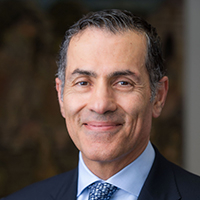
Vali R. Nasr
Majid Khadduri Professor of Middle East Studies and International AffairsVali Nasr is the Majid Khadduri Professor of International Affairs and Middle East Studies at the Johns Hopkins University School of Advanced International Studies (SAIS) and a Non-Resident Senior Fellow at Atlantic Council’s South Asia Center. He served as the eighth Dean of Johns Hopkins SAIS between 2012 and 2019 and served as Senior Advisor to U.S. Special Representative for Afghanistan and Pakistan, Ambassador Richard Holbrooke between 2009 and 2011.
Nasr is the author of The Dispensable Nation: American Foreign Policy in Retreat; Forces of Fortune: The Rise of a New Middle Class and How it Will Change Our World; The Shia Revival: How Conflicts within Islam will Shape the Future; Democracy in Iran: History and the Quest for Liberty; Islamic Leviathan, Islam and the Making of State Power; Mawdudi and the Making of Islamic Revivalism; and Vanguard of Islamic Revolution: Jama'at-i Islami of Pakistan; and numerous articles in scholarly journals.
He has advised senior American policymakers, world leaders, and businesses, including the President, Secretary of State, senior members of the Congress, and presidential campaigns. He has written for New York Times, Foreign Affairs, Financial Times, Wall Street Journal, and The Washington Post, among others.
He is a member of the International Board of Advisors of the Blavatnik School of Government at Oxford University, the International Board of Advisors at the American University of Beirut, and the Board of Advisors of Rajaratnam School of International Studies in Singapore. He has been the recipient of grants from the John D. and Catherine T. MacArthur Foundation, the Harry Frank Guggenheim Foundation, and the Social Science Research Council, and was named a 2006 Carnegie Scholar.
He received his BA from Tufts University in International Relations summa cum laude and was initiated into Phi Beta Kappa in 1983. He earned his master's from the Fletcher School of Law in and Diplomacy in international economics and Middle East studies in 1984, and his PhD from MIT in political science in 1991.
Read more...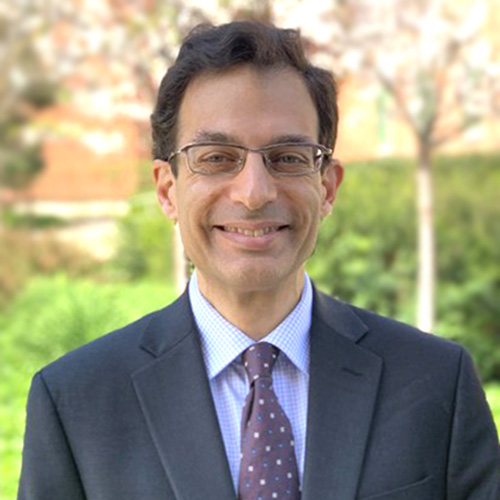
Seth Kaplan
Professorial Lecturer in the Paul H. Nitze School of Advanced International Studies (SAIS)Seth D. Kaplan is a professorial lecturer in the Paul H. Nitze School of Advanced International Studies (SAIS) at Johns Hopkins University.
He is also a senior adviser for the Institute for Integrated Transitions (IFIT) and consultant to organizations including the World Bank, USAID, State Department, and OECD.
Professor Kaplan is the author of two books on fragile states: “Fixing Fragile States: A New Paradigm for Development” (Praeger Security International, 2008) and “Betrayed: Promoting Inclusive Development in Fragile States” (Palgrave Macmillan, 2013). He also authored one book on human rights and culture, “Human Rights in Thick and Thin Societies: Universality Without Uniformity” (Cambridge University Press, 2018). He is working on a book on reversing social breakdown.
He is the author of the U.S. State Department’s “Political Transitions Analysis Framework” (2020) and co-author of the United Nations – World Bank flagship report “Pathways for Peace: Inclusive Approaches to Preventing Violent Conflict” and USAID’s “Fragility Assessment Framework” (2018). He was also the lead author, coordinator, and managing editor of both an eight country comparative study for the United States Institute of Peace on social contract formation in fragile states and a 100-page flagship publication for IFIT articulating a new approach to regime transitions in post-conflict and post-authoritarian countries.
Read more...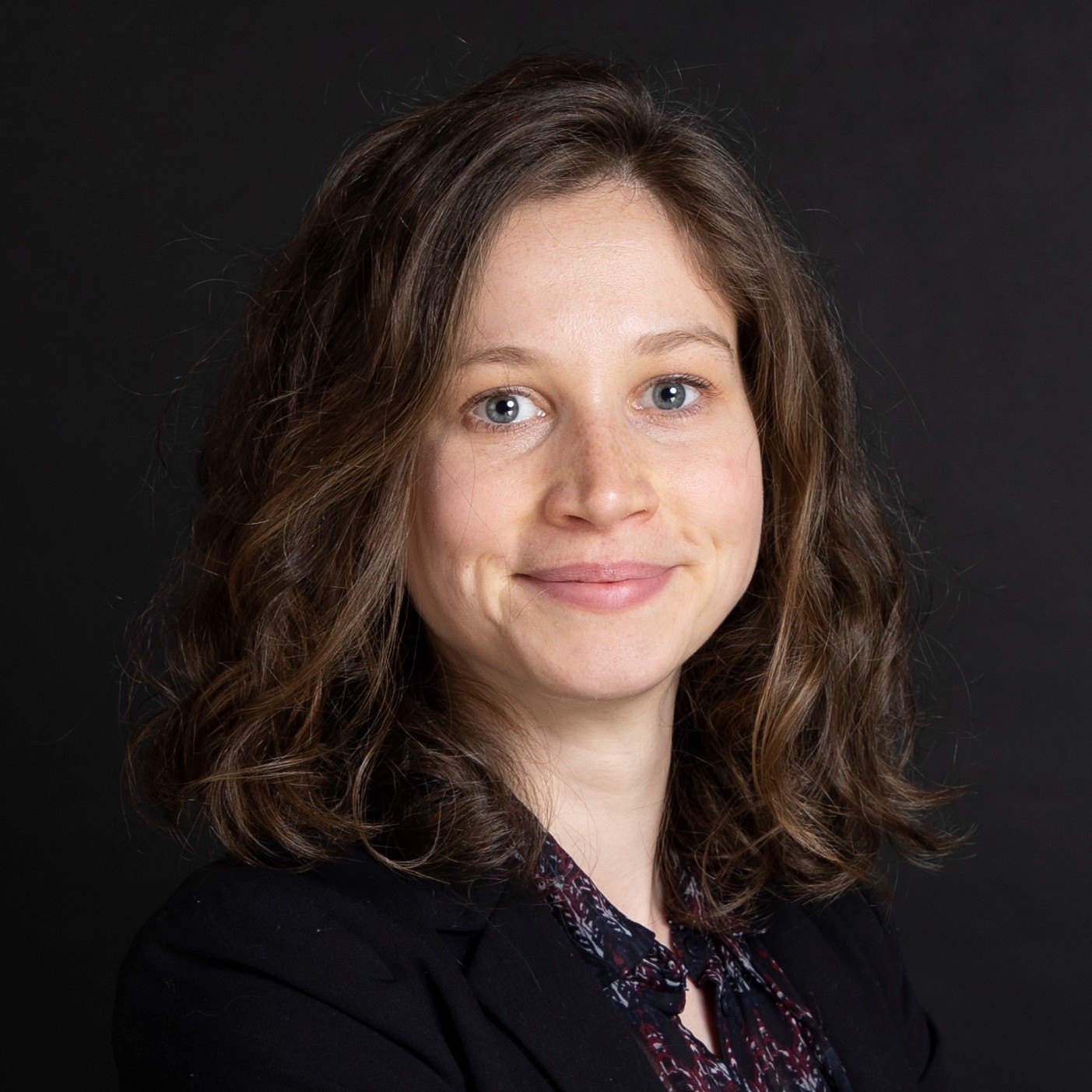
Christina L. Toenshoff
Assistant Professor of European Politics and Political Economy at Leiden UniversityChristina Toenshoff is an assistant professor of European politics and political economy at Leiden University. Her research focuses on comparative and international political economy of climate and environmental policy.
Much of her research focuses on the role of interest groups and public opinion in shaping policy outcomes. Her most recent work examines how companies and associations lobby the European Union on climate policy. In the past, she has also conducted research on European integration and trade policy.
Christina received a Ph.D. in Political Science from Stanford University in 2023. She also holds an M.A. in International Political Economy and International Economics from the Johns Hopkins School of Advanced International Studies and a B.A. in Philosophy, Politics and Economics from Oxford University.
Read more...
Gordon Bodnar
Morris W. Offit Professor of International Finance | Director of the Master of Arts in International Economics and FinanceGordon Bodnar is the Morris W. Offit Professor of International Finance.
Dr. Bodnar received his PhD in Economics from Princeton University in 1991. At Johns Hopkins SAIS, he has been the Director of the International Economics Program since 2005 and is the founding director of the school's Master of International Economics and Finance degree. In 2011, he was awarded a courtesy appointment as a Professor in the Carey Business School at Johns Hopkins.
Before joining JHU, Dr. Bodnar was an assistant professor at The Wharton School of the University of Pennsylvania and the Simon Graduate School of Business at the University of Rochester. He also held visiting professorships at Frankfurt University in Germany and the Wharton School. In the past, he has been a research fellow at the National Bureau of Economic Research and a visiting scholar at the International Monetary Fund.
Dr. Bodnar’s research focuses on the areas of international finance and corporate finance. Specific topics include corporate exchange rate exposure, risk management, the valuation of multinational operations, and financial disclosures. His research has been published in major academic journals in finance, economics, and accounting as well as in practitioner journals. In addition, he is currently an associate editor for European Financial Management and the Journal of Asian Economics and is on the editorial board of the Journal of International Financial Management and Accounting.At Johns Hopkins SAIS, Dr. Bodnar teaches master’s-level courses in corporate finance and international finance. Elsewhere, he teaches international corporate finance for the Wharton MBA for Executives program in Philadelphia and San Francisco as well as international finance courses for Executive MBA programs at Cornell University and the Carey Business School. He also lectures in a variety of executive education programs and is an occasional consultant to the financial industry, multinational firms, and international research organizations.
Dr. Bodnar is the recipient of eight Excellence in Teaching awards from Johns Hopkins SAIS, Wharton, and Cornell.
Read more...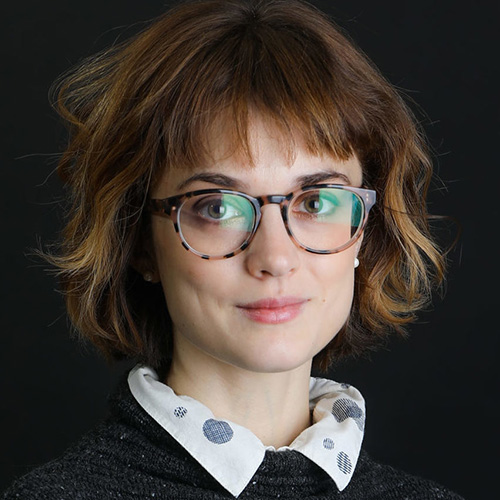
Silvia Merler
Adjunct LecturerSilvia Merler is an adjunct lecturer. Her research has focused extensively on topics of European political economy, with attention to European macro- and financial economics issues as well as EU institutions and governance.
Silvia received her PhD in European and Eurasian Studies with a focus on European political economy from Johns Hopkins School of Advanced International Studies (SAIS). She also holds a BA and MSc in Economics and Social Sciences from Bocconi University in Milan. In addition, she has completed the CFA Certificate in ESG Investing and two Responsible Investment courses offered by the UN PRI Academy.Silvia is the Head of ESG & Policy Research at global asset manager Algebris, which she joined as a research associate in 2019. Before coming to Algebris, she was an Affiliate Fellow at Bruegel, a Brussels-based economic policy think tank, and also served as an economic analyst at the European Commission’s DG ECFIN.
Read more...
Leah Downey
Adjunct LecturerLeah Downey is an adjunct lecturer. She received her PhD in Political Theory from Harvard University in 2022 and her MSc from the London School of Economics.
Leah also holds bachelor’s degrees in both Mathematics and Economics from the University of North Carolina at Chapel Hill.
She is a Junior Research Fellow at St. John’s College, University of Cambridge and was previously a visiting researcher at the Sheffield Political Economy Research Institute (SPERI).
Read more...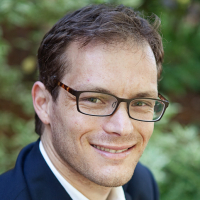
David A. Steinberg
Associate Professor of International Political Economy | Director of the PhD ProgramDavid A. Steinberg is an associate professor of international political economy. He currently serves as the Director of SAIS's PhD program.
Steinberg’s research focuses on the politics of international money and finance. His 2015 book Demanding Devaluation: Exchange Rate Politics in the Developing World(Cornell University Press), was awarded the Peter Katzenstein Book Prize and received an Honorable Mention for the American Political Science Association’s William H. Riker Book Award. He is also the author of articles in Comparative Politics, Comparative Political Studies, International Studies Quarterly, Journal of Politics, and World Politics, among other outlets.
Steinberg has received support for his research through a Johns Hopkins Catalyst Award and fellowships from the Wilson Center, University of Pennsylvania’s Browne Center for International Politics, and the Social Sciences and Humanities Research Council of Canada. In 2017, he was honored with the Max M. Fisher Prize for Teaching Excellence.
Read more...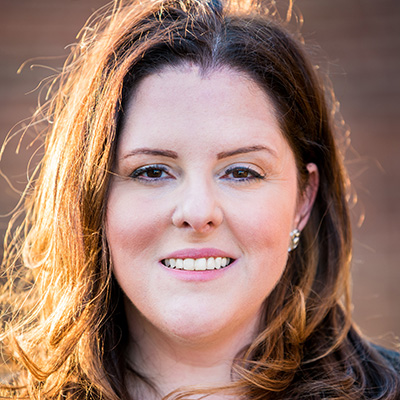
The continuous collaboration between professors and students has been so amazing. The professors are all working professionals, and their knowledge has allowed me to develop quantitative analysis skills in global economics, macroeconomics, and statistics.
Request Information
To learn more about the MA in Global Risk (online) and download a brochure, fill out the fields below, or call +1 443-565-4632 to talk with one of our enrollment specialists.
